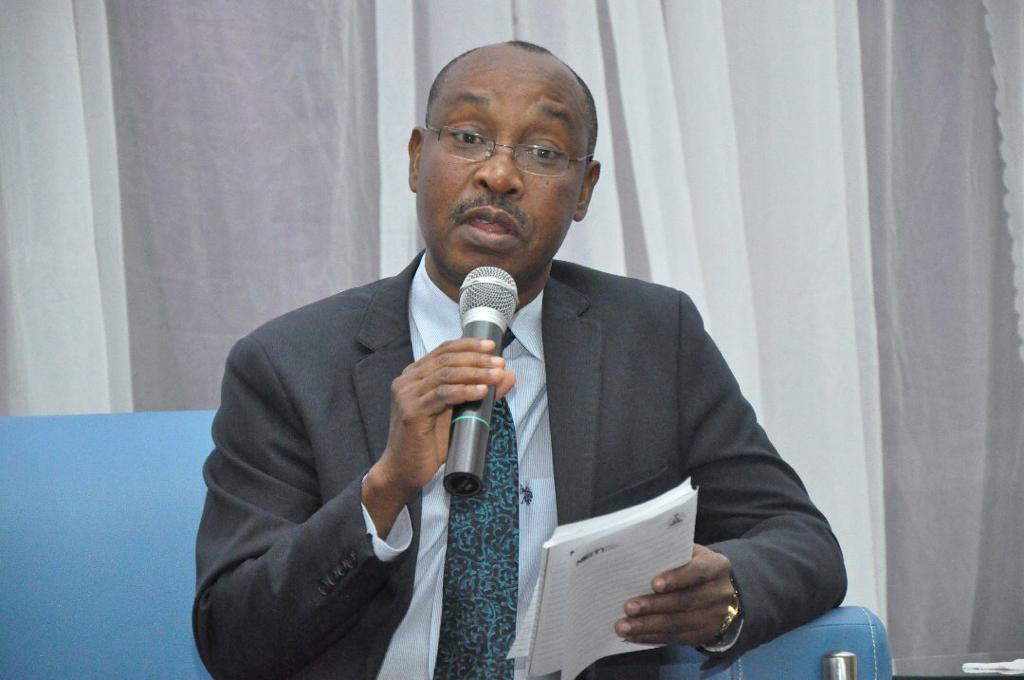
The Nigeria Extractive Industries Transparency Initiative (NEITI) on Tuesday, tasked Ministries, Departments and Agencies (MDAs) to commit to the energy transition process, specifically urging the ministry of petroleum and the Nigerian Upstream Petroleum Regulatory Commission (NUPRC) to ensure strict implementation of gas flare and emissions reduction rules.
Executive Secretary of NEITI, Dr Ogbonnaya Orji, who spoke at a roundtable in Abuja on the “Long-Term Impact of Energy Transition on Nigeria’s Economy” organised by NEITI, stated that while the global shift from fossil fuels to renewables is not optional, it is an inevitability that demands foresight, coordination, and deliberate action.
For a nation whose economy has long been tied to oil and gas, this transition, he said, is both a challenge and a unique opportunity, a statement issued by the NEITI Director of Communications & Stakeholder Management, Obiageli Onuorah, said.
“The Federal Ministry of Petroleum Resources and the NUPRC occupy a frontline position in this process. As custodians of upstream oil and gas regulation, their role is to ensure that petroleum operations progressively align with decarbonisation objectives.
“This includes enforcing strict disclosure of emissions, compelling companies to adopt flare reduction technologies, and regulating divestments in line with the Petroleum Industry Act. By insisting on transparency in licensing and mandating that new petroleum projects incorporate renewable integration, these institutions can position Nigeria’s oil and gas sector on a more sustainable path.
“The Nigerian National Petroleum Company Limited (NNPC) equally bears a transformative responsibility. No longer should the NNPC be seen as a traditional oil company, but as a diversified energy player capable of driving Nigeria’s energy future.
“It must channel investment into gas, petrochemicals, and renewables, while embracing technologies for carbon capture and green hydrogen. Through strategic partnerships with global clean energy investors and the gradual reallocation of profits into renewable ventures, the company can lead the rebranding of Nigeria’s energy profile from oil dependence to diversified resilience.
“The Ministry of Finance, Budget, and National Planning stand at the heart of fiscal transformation. Nigeria’s revenue framework must be reengineered to reflect a post-oil reality,” Orji maintained.
According to him, this means mainstreaming climate financing into annual budgets, designing sustainability-linked fiscal instruments, and actively mobilising international climate funds to ease the transition burden.
Through innovative tools such as green bonds, debt-for-climate swaps, and prudent fiscal planning, the ministry, according to Orji, can provide the financial backbone for Nigeria’s just transition.
He added: “The Ministry of Power also holds the key to unlocking access to affordable, reliable, and clean electricity. Expanding renewable energy adoption and ensuring inclusive energy access are its twin responsibilities.
“Investments in off-grid solar, wind, and hydro projects, backed by incentives for private sector involvement, will help bridge the energy poverty gap. Strengthening grid infrastructure to absorb renewable energy flows is equally urgent.
“In this way, the ministry of power will ensure that the transition improves lives rather than deepening inequalities,” the executive secretary reiterated.
Emphasising the effects on environment, the stressed that the Ministry of Environment must be the anchor of Nigeria’s climate diplomacy and environmental accountability.
“As custodian of our emission reduction commitments, it must safeguard host communities, ensure environmental justice, and track Nigeria’s carbon inventory transparently. By integrating emissions monitoring into national reporting and leading Nigeria’s voice at international climate negotiations, the ministry can secure fair treatment and equitable access to global climate finance, ensuring that Africa is not left behind,” Orji said.
For the Ministry of Solid Minerals Development, Orji said that the ministry must harness these resources sustainably to position the country as a key player in the clean energy supply chain.
In his remarks, the Chairman, Revenue Mobilisation Allocation and Fiscal Commission (RMAFC) represented by the Federal Commissioner, Prof. Steve Ugbah, in his goodwill message, stated that the global energy transition marked by declining fossil fuel demand, accelerating renewable energy adoption, and international commitments to net-zero emissions pose significant risks and opportunities for Nigeria.
Ugbah made some recommendations which included adopting a transition-sensitive revenue allocation rules; establishing transition and decommissioning fund; providing conditional diversification grants; institutionalising scenario-based forecasting; enhance data transparency and coordination.
Also, the Chairman, Fiscal Responsibility Commission (FRC) , Mr. Victor Muruako, represented by the Special Adviser, Mr Chris Nwadukain his goodwill message at the roundtable expressed the organisation’scommitment to work with NEITI as an agency established to promote transparency, accountability and prudence in the management of the nation’s resources.
Emmanuel Addeh



